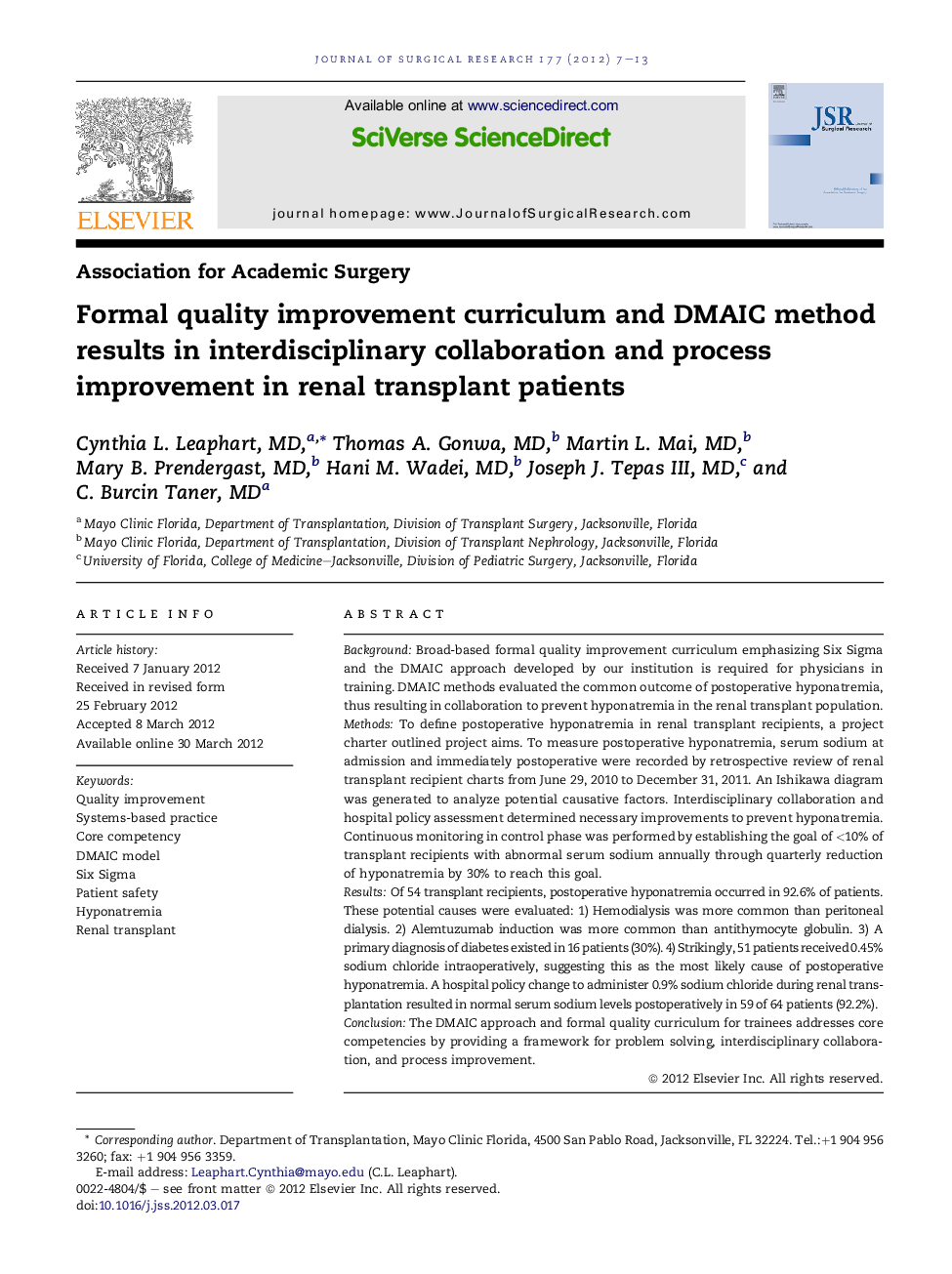| کد مقاله | کد نشریه | سال انتشار | مقاله انگلیسی | نسخه تمام متن |
|---|---|---|---|---|
| 4301479 | 1288439 | 2012 | 7 صفحه PDF | دانلود رایگان |

BackgroundBroad-based formal quality improvement curriculum emphasizing Six Sigma and the DMAIC approach developed by our institution is required for physicians in training. DMAIC methods evaluated the common outcome of postoperative hyponatremia, thus resulting in collaboration to prevent hyponatremia in the renal transplant population.MethodsTo define postoperative hyponatremia in renal transplant recipients, a project charter outlined project aims. To measure postoperative hyponatremia, serum sodium at admission and immediately postoperative were recorded by retrospective review of renal transplant recipient charts from June 29, 2010 to December 31, 2011. An Ishikawa diagram was generated to analyze potential causative factors. Interdisciplinary collaboration and hospital policy assessment determined necessary improvements to prevent hyponatremia. Continuous monitoring in control phase was performed by establishing the goal of <10% of transplant recipients with abnormal serum sodium annually through quarterly reduction of hyponatremia by 30% to reach this goal.ResultsOf 54 transplant recipients, postoperative hyponatremia occurred in 92.6% of patients. These potential causes were evaluated: 1) Hemodialysis was more common than peritoneal dialysis. 2) Alemtuzumab induction was more common than antithymocyte globulin. 3) A primary diagnosis of diabetes existed in 16 patients (30%). 4) Strikingly, 51 patients received 0.45% sodium chloride intraoperatively, suggesting this as the most likely cause of postoperative hyponatremia. A hospital policy change to administer 0.9% sodium chloride during renal transplantation resulted in normal serum sodium levels postoperatively in 59 of 64 patients (92.2%).ConclusionThe DMAIC approach and formal quality curriculum for trainees addresses core competencies by providing a framework for problem solving, interdisciplinary collaboration, and process improvement.
Journal: Journal of Surgical Research - Volume 177, Issue 1, September 2012, Pages 7–13